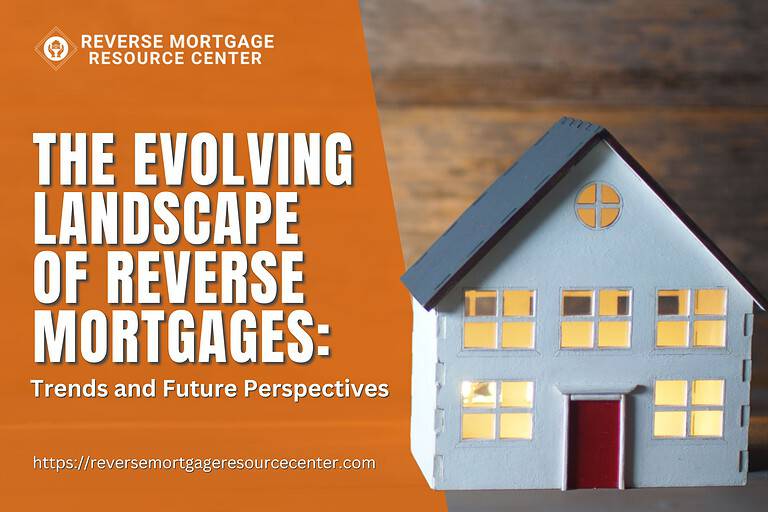Navigating Reverse Mortgages After the Loss of a Spouse: Financial Resilience
Losing a spouse is an emotionally challenging experience, and for seniors, it often comes with the added burden of navigating significant financial decisions. In the realm of retirement planning, one key aspect that requires careful consideration is the management of reverse mortgages. In this article, we will explore strategies for maintaining financial resilience after the loss of a spouse, with a focus on handling reverse mortgages and estate planning. Additionally, we will discuss the importance of support networks and available resources to guide widowed seniors through the complex landscape of financial changes.
Understanding Reverse Mortgages
Reverse mortgages have become a popular financial tool for seniors looking to unlock the equity in their homes to supplement their retirement income. These loans allow homeowners aged 62 or older to convert a portion of their home equity into readily accessible funds while retaining homeownership. Unlike traditional mortgages, reverse mortgages do not require monthly repayments. Instead, the loan balance is repaid when the homeowner sells the home, moves out of the property, or passes away.
Implications After the Loss of a Spouse
Following the passing of a spouse, managing a reverse mortgage becomes a critical aspect of financial planning. Surviving spouses are often faced with decisions regarding the loan, and understanding the options available is crucial for maintaining financial stability. In the case of a reverse mortgage, if both spouses were on the loan, the surviving spouse can continue to live in the home without repaying the loan as long as certain conditions are met.
However, if the surviving spouse is not listed on the reverse mortgage, immediate repayment of the loan might be required. This can pose a significant financial challenge, especially when dealing with the emotional aftermath of a spouse’s loss. It is essential to communicate with the loan servicer promptly to discuss available options and potential solutions.
Strategies for Managing Reverse Mortgages During Bereavement
Assessing Loan Obligations
The first step is to carefully review the terms and conditions of the reverse mortgage. Surviving spouses should be aware of their obligations, including repayment options and potential consequences for non-compliance. If the surviving spouse wishes to remain in the home, they must continue to meet the loan requirements, such as maintaining the property and paying property taxes and insurance.
Consideration of Repayment or Sale
Depending on the circumstances, surviving spouses may need to make decisions about repaying the reverse mortgage. This could involve selling the home, refinancing the loan, or utilizing other assets to settle the debt. Professional financial advice can play a pivotal role in making informed decisions that align with the individual’s financial goals.
Selling the home might be a viable option if the surviving spouse no longer wishes to stay in the current residence or if the financial burden of maintaining the property becomes unsustainable. Proceeds from the sale can be used to repay the reverse mortgage, and any remaining funds can be directed towards securing alternative housing or supplementing living expenses.
Exploring Financial Counseling
Many seniors find value in seeking financial counseling to navigate the complexities of reverse mortgages. Non-profit organizations and government agencies offer counseling services that can provide invaluable insights, helping widowed individuals make sound financial decisions during this challenging time. Financial counselors can assist in exploring available options, understanding the long-term implications of each choice, and developing a sustainable financial plan.
Estate Planning for Widowed Seniors
Reassessing Estate Plans
The loss of a spouse necessitates a reassessment of existing estate plans. This includes updating wills, trusts, and beneficiaries on various accounts. Consulting with an estate planning attorney can help ensure that the deceased spouse’s wishes are honored while aligning the estate with the surviving spouse’s current financial goals.
In some cases, the surviving spouse may become the sole inheritor of the estate, including the home subject to the reverse mortgage. It’s crucial to update legal documents to reflect the current situation and to avoid any potential complications in the future.
Understanding Tax Implications
Estate planning involves considerations of potential tax implications. Seniors should explore the tax consequences associated with inherited assets, retirement accounts, and any property transferred as part of the estate. A comprehensive understanding of tax implications can prevent unforeseen financial challenges down the road.
Widowed individuals may benefit from consulting with a tax professional who can provide guidance on minimizing tax liabilities and optimizing the distribution of assets. Proper tax planning can contribute to the overall financial well-being of the surviving spouse.
Legacy Planning
Beyond the immediate financial adjustments, widowed seniors may wish to engage in legacy planning. This involves identifying personal and financial legacies, including charitable contributions, family heirlooms, and other meaningful bequests. Legacy planning not only provides a sense of fulfillment but also ensures a smooth transition of assets to the next generation.
Whether it’s establishing a scholarship in the deceased spouse’s name or designating specific assets for family members, legacy planning allows the surviving spouse to create a lasting impact and leave behind a meaningful legacy. It’s a way to honor the memory of the departed loved one while contributing positively to future generations.
Support Networks and Resources
Community and Social Support
Widowed seniors often find solace in community and social support networks. Local senior centers, grief support groups, and community organizations can offer emotional support during challenging times. Connecting with peers who have experienced similar circumstances can provide valuable insights and a sense of camaraderie.
Grief support groups specifically tailored for seniors can address the unique challenges they face, including those related to finances and homeownership. Sharing experiences and learning from others in similar situations can ease the emotional burden and empower widowed individuals to make informed decisions.
Financial Advisors and Counselors
Professional guidance is essential when navigating complex financial decisions. Experienced financial advisors and counselors can provide personalized advice, helping widowed seniors understand their unique financial situation and develop a plan for the future. Look for advisors with expertise in retirement planning and estate management.
Financial professionals can assist in creating a comprehensive financial plan that takes into account income sources, expenses, investment strategies, and long-term goals. They can also provide insights into the implications of various financial decisions, ensuring that widowed seniors are equipped to make informed choices that align with their overall financial well-being.
Government Programs and Assistance
Various government programs and assistance initiatives exist to support seniors in managing financial challenges. Widowed individuals should explore programs such as Social Security survivor benefits, Medicare, and Medicaid to ensure they are leveraging all available resources.
Social Security survivor benefits can provide financial support to the surviving spouse, helping cover living expenses and healthcare costs. Medicare and Medicaid can offer essential healthcare coverage, ensuring that widowed seniors have access to necessary medical services without incurring excessive out-of-pocket expenses.
REVERSE MORTGAGE RESOURCE CENTER ~LIVE LIFE ON YOUR TERMS~
Our Lending Team has been serving our clients since 2004. We are passionate about serving our clients with integrity to help them achieve their financial goals.







